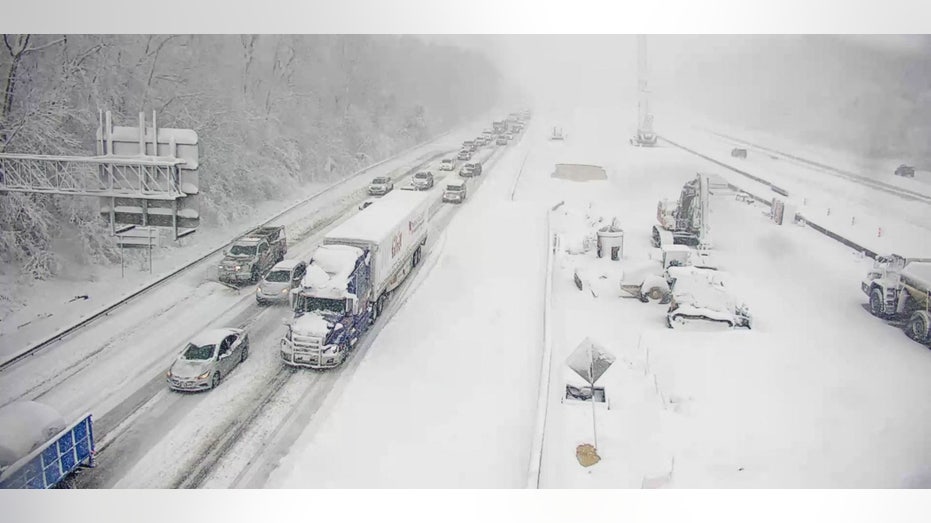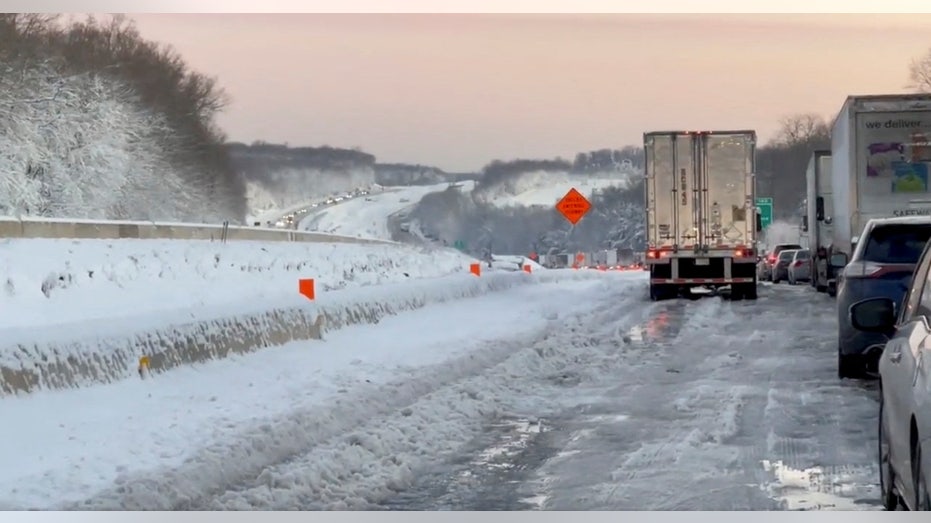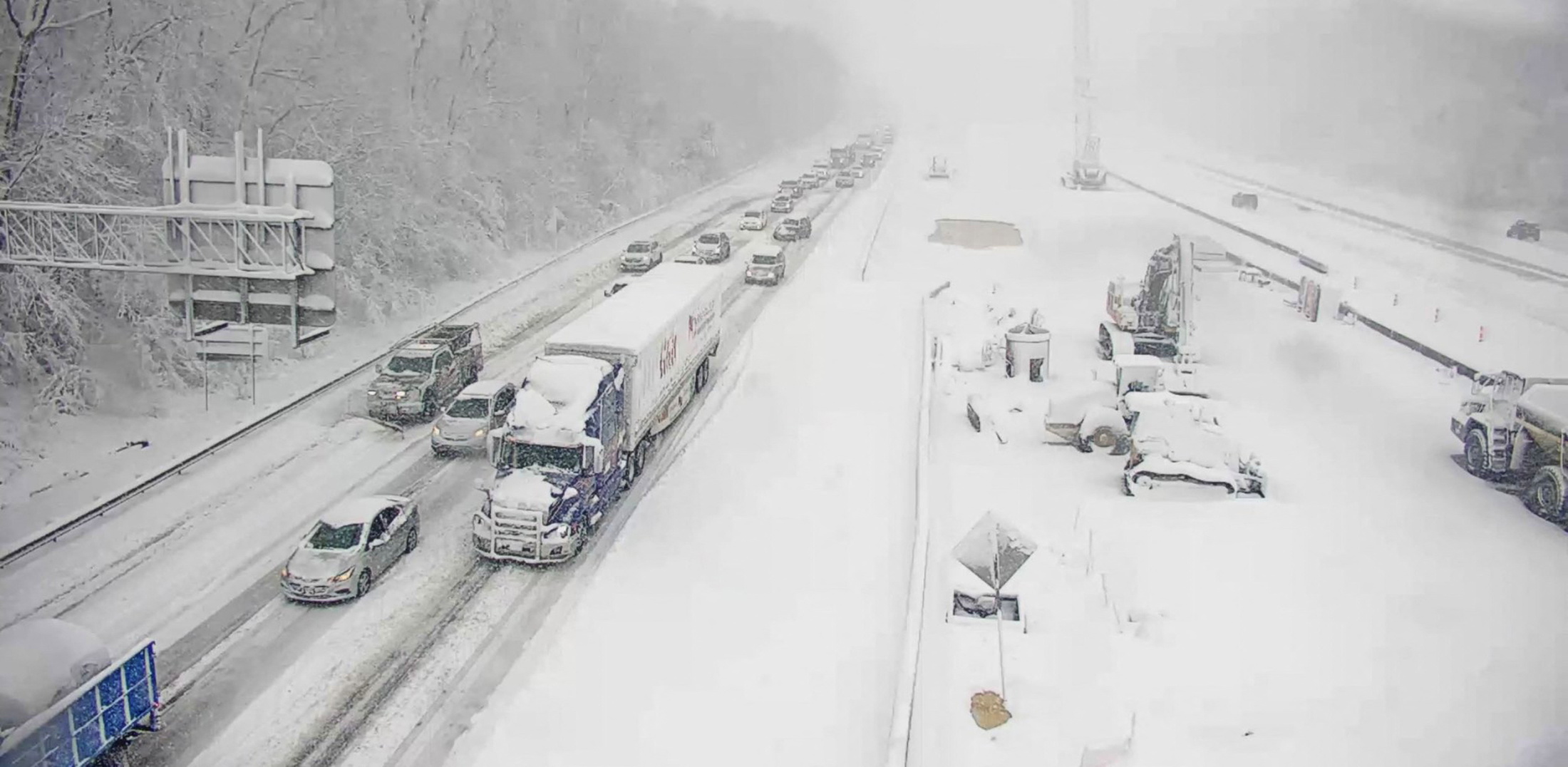Virginia's snowy I-95 traffic jam invites call for better preparedness for the unexpected
Some drivers were trapped in traffic for more than 24 hours on Interstate 95
How stranded drivers can survive in their vehicle
Survival expert Dave Canterbury gives his best tips on how to survive a snowstorm stranded in a car.
Increased spending on public health preparedness and drilling for potential disaster response scenarios could help states like Virginia handle the next "unprecedented" storm or other calamity, according one expert.
"In public health, we don't often think about the interstate as something other than a place where maybe there's accidents and injuries that happen," said Megan Latshaw, associate scientist in Environmental Health and Engineering at the Johns Hopkins Bloomberg School of Public Health. "We do talk in public health about what we call all hazards preparedness. So that means, we're ready for anything."

Vehicles are seen on an icy stretch of Interstate 95 closed as a storm blankets the U.S. region in snow, near Fredericksburg, Virginia, U.S. January 3, 2022. Picture taken January 3, 2022. (Virginia Department of Transportation/Handout via REUTERS)
State officials described the storm that swept through Northern Virginia on Monday as "unprecedented." It dropped about 10 inches of snow in some areas and temperatures plunged into the teens. During a conference call with reporters Tuesday afternoon, Transportation Commissioner Stephen Birch said that a cycle of rain before snow had thwarted preemptive efforts like pretreating the roads, due to concerns the rain would just wash the ice melt away.
To prepare for something unexpected like that, Latshaw told FOX Business Tuesday, municipalities should treat public health and infrastructure spending "like the military" and routinely drill on potential disaster response situations.
"The money needs to be there all the time no matter what," she said. "Because what happens is we ramp up to respond to things, and then we have to ramp that down and lay people off or move them over to two different projects."

Vehicles are stuck in gridlock in the morning on the Interstate Highway I-95 near Stafford, Virginia, U.S., Jan. 4, 2022 in this still image obtained from a social media video. (Susan Phalen/via REUTERS)
The snarl of traffic prompted state transportation officials to close down the entire interstate — and the main artery up the East Coast — between exits 152 and 104.
State police said Tuesday evening that despite the chaos, they had received no reports of deaths, injuries or serious accidents.
"It's a little mind-boggling, if you think about there was no access to water, there was no access to food," Latshaw said. "There was no heat. There was no sanitation like places to relieve yourself or even wash your hands. There was no access to health care. It sounds like you're not in the United States."
Some drivers reported spending 15 hours or more trapped in traffic, including sitting U.S. Sen. Tim Kaine, D-Va., who said it took him 27 hours to travel the 110 miles between Richmond and Washington.
VIRGINIA I-95 WINTER STORM DISASTER LEAVES HUNDREDS STRANDED: ‘THIS IS UNPRECEDENTED’
"Every time there's an emergency, a public health emergency, everybody in the country rushes to say, we need funding for that: We need funding for COVID, we need funding for a goal, we need funding for the funds," Latshaw said. "But then as soon as the emergency abates, then everybody says, 'OK, now we're going to put that funding somewhere else.'"
By Tuesday evening, authorities said the jams had cleared out and plows were still working to remove snow.
GET FOX BUSINESS ON THE GO BY CLICKING HERE
Latshaw also said looking at innovative ways to design new infrastructure could improve public health. For example: designing new neighborhoods with walkable sidewalks.





















